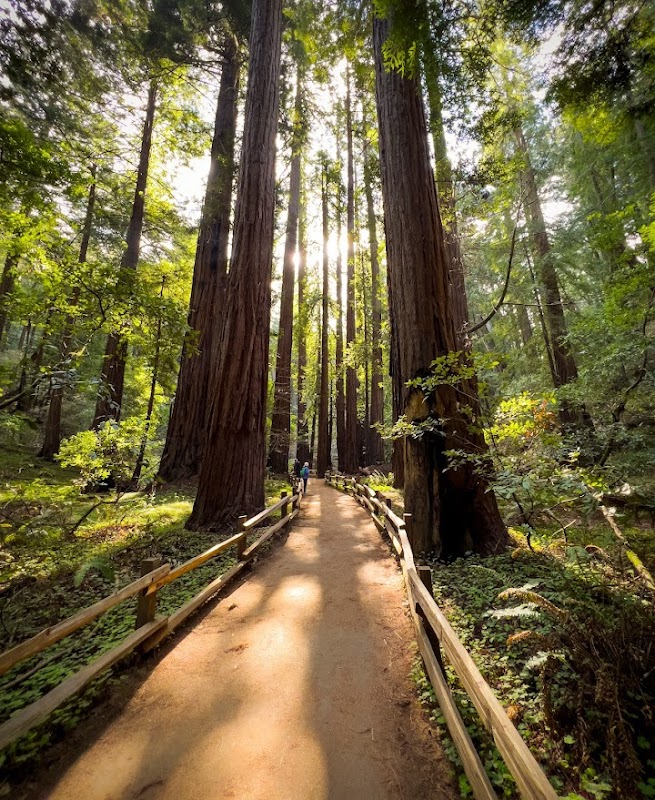
eco-tours near Petaluma, California
Interested in eco-tours near Petaluma, California? While formal eco-tour companies are limited here, the region offers abundant self-guided nature experiences and sustainable farm visits that blend adventure with environmental awareness. Discover how to explore this area responsibly and find the best trails and outdoor spots to connect with nature.
Choose Footwear with Good Traction
Many trails around Petaluma feature dirt, gravel, and occasional muddy sections, especially near wetlands. Sturdy hiking shoes will keep you steady and comfortable.
Bring Refillable Water
Water sources are rare on local trails, so carry enough and use refill stations where available to reduce plastic waste.
Start Early to Avoid Afternoon Heat
Especially in summer, morning hours offer cooler temperatures and more wildlife activity, enhancing your eco-experience.
Respect Wildlife and Habitats
Stay on marked paths to minimize disturbance and observe animals from a distance to protect their natural behavior.
eco-tours near Petaluma, California
Experience Eco-Tours Near Petaluma, California: Your Gateway to Thoughtful Adventure
If you're searching for eco-tours near Petaluma, California, you might find that this charming city and its immediate surroundings focus more on self-guided nature explorations, sustainable farm visits, and wildlife observation rather than structured eco-tour companies. Petaluma’s rural landscape, dominated by rich farmland and protected natural areas, invites travelers to engage with the environment responsibly but does not currently host formal eco-tour operations typically associated with guided group tours.
The best way to embrace eco-friendly adventures near Petaluma is by exploring regional parks, coastal preserves, and organic farms that champion environmental stewardship. These open spaces offer immersive outdoor experiences where the landscape ‘breathes’ and invites visitors to understand its delicate balance—rolling grasslands, riparian corridors, and tidal wetlands that ‘whisper’ the stories of native flora and fauna.
With an eye on sustainability, many local farms open their gates to eco-conscious visitors interested in understanding regenerative agriculture practices, local food systems, and wildlife habitat restoration. These visits mix adventure and education, encouraging practical awareness while trekking modest trails or cycling past lush fields where nature and farming coexist.
To plan your visit around these eco-friendly activities, consider timing your trip to coincide with farm tours available during harvest seasons or join volunteer programs supporting habitat preservation around the Petaluma River.
For those looking for adventure with an environmental focus near Petaluma, you’ll find a mix of hiking and birdwatching in nearby parks like Shollenberger Park—a tidal wetland home to numerous bird species—or Helen Putnam Regional Park’s quiet hills. These areas provide a chance to connect deeply with Northern California’s ecosystems, where every breeze and bird call feels fiercely alive and part of a fragile, ongoing story.
Below this overview, you will find a selection of recommended adventures—from guided hikes and cycling tours to visits to local artisans—specifically curated to showcase the best of Petaluma's outdoor opportunities. Use these resources to tailor your eco-conscious journey with confidence and insight.
Start your eco-adventure near Petaluma today, focusing on respect for the land and a practical approach to sustainable travel. See below for our top recommended adventures to guide your exploration.
Nearby Trips
All Adventures
Boat Charters
Water Activities
Adventures near Petaluma, California
Discover the unique and memorable adventures that make Petaluma, California special.
Frequently Asked Questions
Are there formal eco-tour operators in Petaluma?
Currently, Petaluma itself does not host dedicated eco-tour operators, but visitors can engage in self-guided eco-friendly adventures such as local park visits, wildlife observation, and sustainable farm tours.
What kinds of wildlife might I see on eco-tours near Petaluma?
Common sightings include various bird species in tidal wetlands, deer in regional parks, and a range of native plants thriving in the Mediterranean climate.
When is the best time to visit for wildlife observation?
Spring and early summer are ideal due to abundant migratory birds and blooming wildflowers, while fall offers quieter experiences with changing foliage.
Are the trails near Petaluma suitable for beginners?
Yes, the majority of accessible trails around Petaluma are easy to moderate in difficulty, making them well-suited for beginners and casual hikers.
How can I support conservation efforts during my visit?
Stick to designated trails, carry out all trash, consider volunteering with local environmental organizations, and support eco-conscious farms and businesses.
What should I pack for a day eco-tour near Petaluma?
Pack sturdy footwear, sun protection, plenty of water, layered clothing, and a camera or binoculars for wildlife and landscape viewing.
Recommended Gear
Hiking Shoes
Provide grip and support on mixed terrain, essential for trails with dirt, gravel, and wet sections.
Sun Protection (Hat & Sunscreen)
Necessary to prevent sunburn and heat-related issues during warmer months.
Reusable Water Bottle
Keeps you hydrated without producing plastic waste; refill at public stations when possible.
Lightweight Rain Jacket
Protects from drizzle and wind during cooler and wetter seasons, improving comfort on exposed trails.
Local Insights
Hidden Gems
- "Shollenberger Park observation decks for close-up birdwatching"
- "Secret hiking paths at Helen Putnam Regional Park that reveal sweeping views of Petaluma Valley"
Wildlife
- "Great blue herons"
- "American kestrels"
- "River otters often seen along the Petaluma River"
History
"Petaluma's landscape reflects a long history of indigenous Coast Miwok stewardship and later agricultural development that shaped the region’s commitment to sustainable farming."
